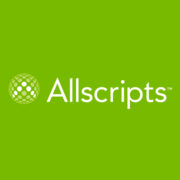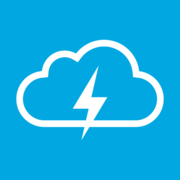Medical Office EMR & EHR Software
Medical Office EMR & EHR Software Overview
Best Medical Office EMR & EHR Software include:
eClinicalWorks, Epic, Intergy EHR, ClearCare, Practice Fusion, athenaClinicals, Allscripts Professional EHR, Insync Healthcare Solutions, CareLogic EHR, by Qualifacts, and NextGen Healthcare Clinical Care Solutions (including MediTouch).
Medical Office EMR & EHR Products
(1-25 of 150) Sorted by Most Reviews

eClinicalWorks headquartered in Westborough offers their EHR / EMR solution, which can be upgraded to a full practice management solution at higher pricing tiers.
Key Features
- HIPAA compliance (43)76%7.6
- Templates (24)45%4.5
- Charting / document management (25)33%3.3

Intergy — which the vendor describes as the core of their complete ambulatory platform — is your first step toward becoming a high-performing practice. The vendor says Intergy EHR was named 2019 Best in KLAS ‘Most Improved Physician Practice Product’ for mid-sized providers (11-75)…
Key Features
- HIPAA compliance (34)82%8.2
- Charting / document management (24)73%7.3
- Customization (24)68%6.8

Insync Healthcare Solutions
InSync offers a cloud-based healthcare IT solutions configured specifically to the user's practice and workflows. EHR, practice management, medical billing, telemedicine, e-prescribing and patient portal for practices of all sizes. Configurable to the practice’s unique workflows…
Key Features
- Charting / document management (10)85%8.5
- Templates (10)85%8.5

ClearCare is an online home healthcare business administration platform. It includes features for scheduling in-home care visits, messaging between patients and caregivers, and marketing caregiving services.
Key Features
- HIPAA compliance (14)69%6.9
Key Features
- HIPAA compliance (18)83%8.3
Key Features
- HIPAA compliance (12)95%9.5

NextGen® EHR solutions meet the needs of ambulatory practices of all sizes by helping users coordinate patient care, while complying with healthcare reform demands such as the Merit-based Incentive Payment System (MIPS), population health, and other value-based care requirements.…
Key Features
- HIPAA compliance (10)92%9.2

Allscripts Professional EHR™ is a solution for small to mid-size physician practices that want to provide safer patient care, streamline operations and improve revenue. Professional works in ACOs, Patient-Centered Medical Homes and Federally Qualified Health Centers. According to…
Key Features
- HIPAA compliance (10)96%9.6
Learn More About Medical Office EMR & EHR Software
What is Medical Office Software?
Electronic medical record (EMR) and electronic health record (EHR) systems are medical software designed to deal with the daily operations of a medical office. The software tracks patient appointments, care notes/results, and financial information in one place. EMR and EHR software is a core aspect of medical offices’ software toolkit, particularly offices that have multiple branches or offices. These systems are available as desktop software, client-server software, and internet-based software.
Generally, all products in this category aim to facilitate efficient documentation, data extraction, and workflow standardization to meet compliance and regulatory requirements. Some products are designed for a single office or small practice. Other products cater to hospitals and organizations with multiple locations or remote/traveling care providers.
EMR vs. EHR
While the terms EMR and EHR are sometimes used interchangeably, EMR software more often refers to digital records for internal use within the practice. On the other hand, EHR software refers to systems that manage digital records which can be shared internally across multiple office branches. EHR software is also conducive to securely sharing patient information externally with patients, other health care providers, insurance companies, etc.
EMR & EHR Software Features & Capabilities
Billing
Patient billing
Reporting
Electronic data submission
Scheduling
Physician scheduling
Automated appointment confirmations
Automated patient check-in
Calendar interface and capabilities
Document management
Continuous EMR updating
Template creation
E-prescribing and E-faxing capabilities
Patient portal
Secure messaging
Workflow
Customizable workflow automation
Multi-office / multi-physician capabilities
Interoperability between providers
EMR/EHR Software Comparison
When comparing different EMR software and EHR software, consider these aspects of the systems:
Notetaking capabilities: Medical professionals consistently rely on EMR software’s notetaking and tracking capabilities to document and exchange valuable patient or visit-specific information. EMR and EHR software will vary in the range and robustness of their offerings in this area. Features may include voice transcription, and the ease of taking notes, and making the notes easily accessible, can heavily impact the day-to-day office experience.
Specialization-specific features: Some EMR and EHR software tailor their offerings to specific specialties that require extra emphasis on certain capabilities. For instance, home care or physical therapy practices may place special emphasis employee management and client relationship management. Non-specialized EMR systems will also vary in the customizability of their record fields to your specific practice’s needs.
Extended Features: Some medical records software, and particularly EHR products, have expanded their offerings to encompass a broader range of processes within medical offices. Increasingly-prevalent capabilities include telehealth, revenue management, and a mobile application.
Pricing
EMR and EHR products typically charge monthly fees based on the number of providers in the practice. Alternatively, they may include a large one-time or annual fee. This can either be a flat rate or a percentage of the practice’s yearly earnings with smaller monthly maintenance fees. Monthly fees range anywhere from $100 - $700 and are very dependent on the size of the practice. One-time fees are larger and typically range from $1,000 to $20,000.
Certain vendors that offer products at the enterprise level charge substantially larger one-time license, implementation, and training fees. This can cost up to hundreds of thousands of dollars. Other vendors offer free or freemium versions of EHR software where the basic package is free. However, there are still implementation or billing costs to consider with these products.
Some vendors also offer the ability to customize and bundle software packages. The prices for these products vary according to the features and services selected.

















